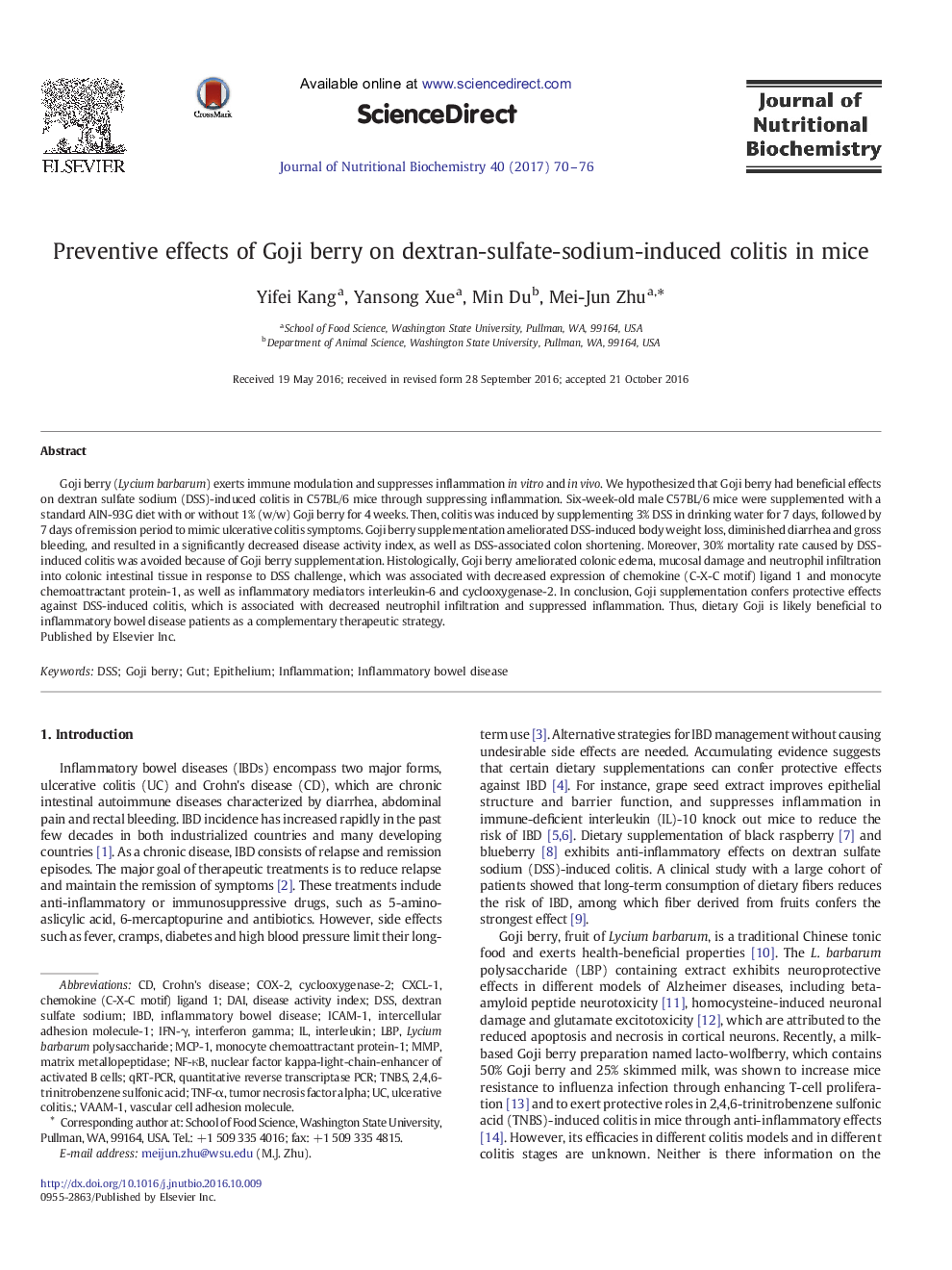| Article ID | Journal | Published Year | Pages | File Type |
|---|---|---|---|---|
| 5512918 | The Journal of Nutritional Biochemistry | 2017 | 7 Pages |
Goji berry (Lycium barbarum) exerts immune modulation and suppresses inflammation in vitro and in vivo. We hypothesized that Goji berry had beneficial effects on dextran sulfate sodium (DSS)-induced colitis in C57BL/6 mice through suppressing inflammation. Six-week-old male C57BL/6 mice were supplemented with a standard AIN-93G diet with or without 1% (w/w) Goji berry for 4 weeks. Then, colitis was induced by supplementing 3% DSS in drinking water for 7 days, followed by 7 days of remission period to mimic ulcerative colitis symptoms. Goji berry supplementation ameliorated DSS-induced body weight loss, diminished diarrhea and gross bleeding, and resulted in a significantly decreased disease activity index, as well as DSS-associated colon shortening. Moreover, 30% mortality rate caused by DSS-induced colitis was avoided because of Goji berry supplementation. Histologically, Goji berry ameliorated colonic edema, mucosal damage and neutrophil infiltration into colonic intestinal tissue in response to DSS challenge, which was associated with decreased expression of chemokine (C-X-C motif) ligand 1 and monocyte chemoattractant protein-1, as well as inflammatory mediators interleukin-6 and cyclooxygenase-2. In conclusion, Goji supplementation confers protective effects against DSSÂinduced colitis, which is associated with decreased neutrophil infiltration and suppressed inflammation. Thus, dietary Goji is likely beneficial to inflammatory bowel disease patients as a complementary therapeutic strategy.
